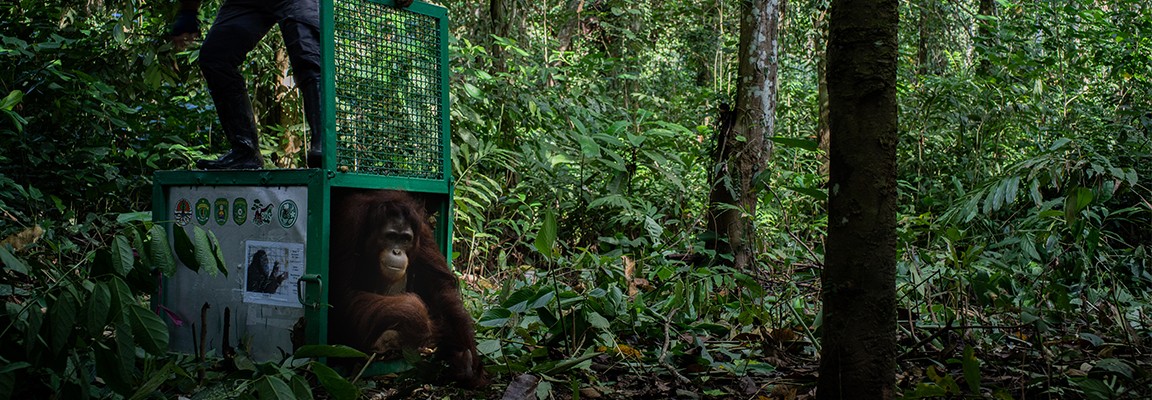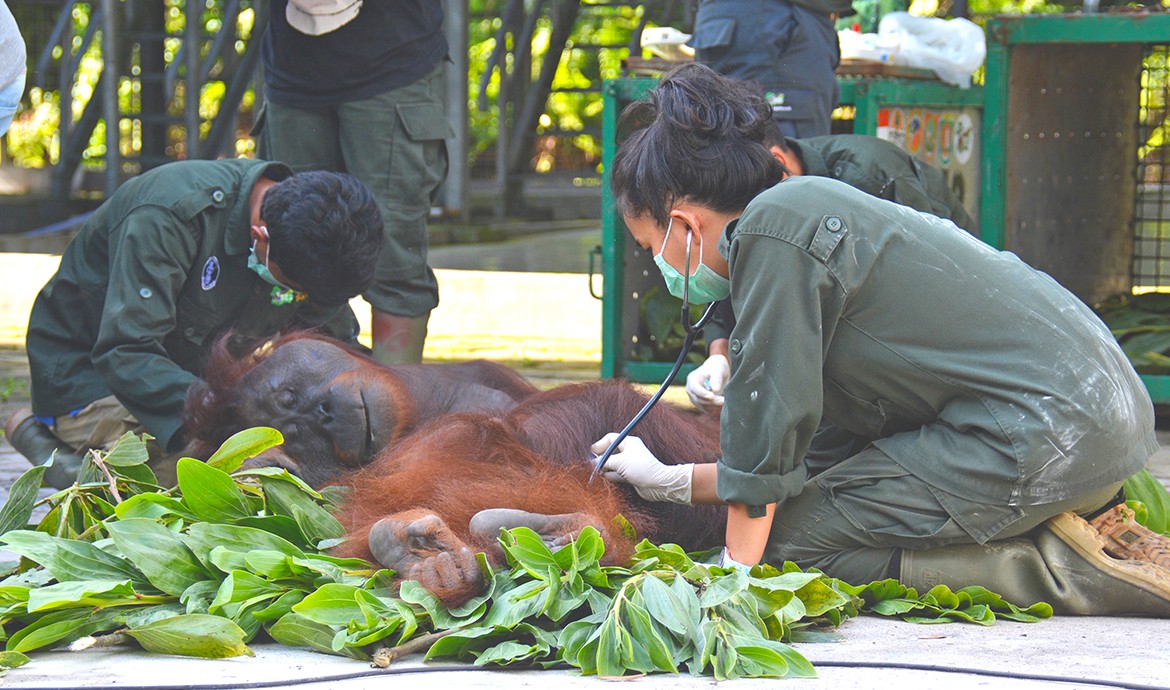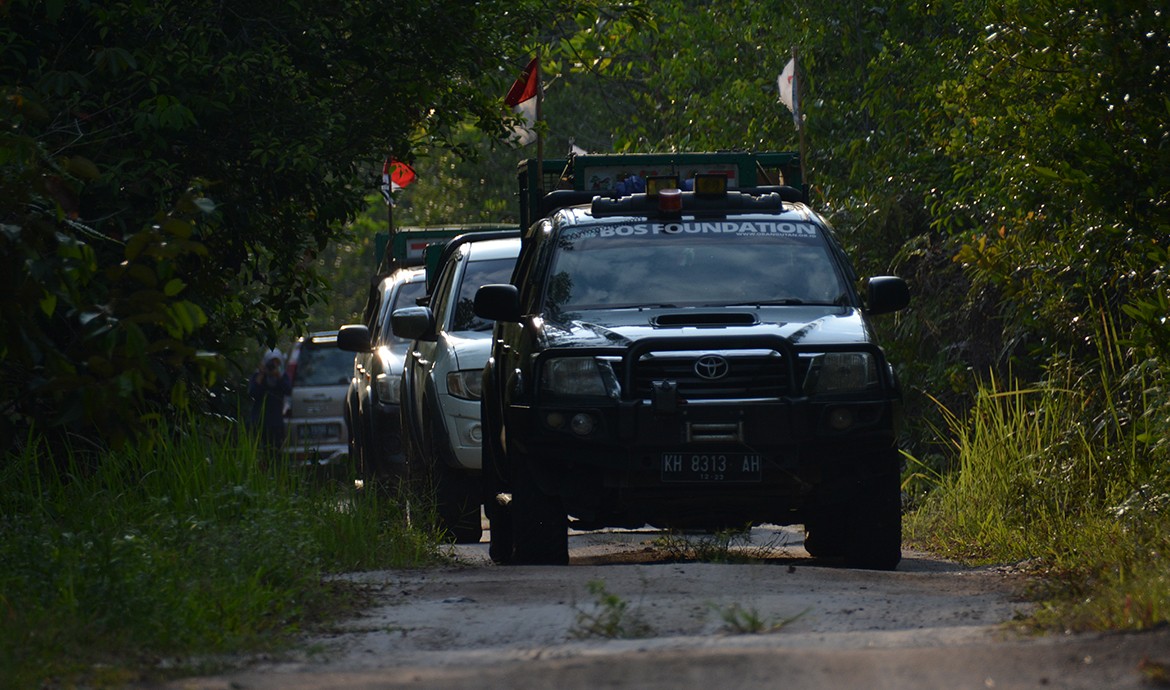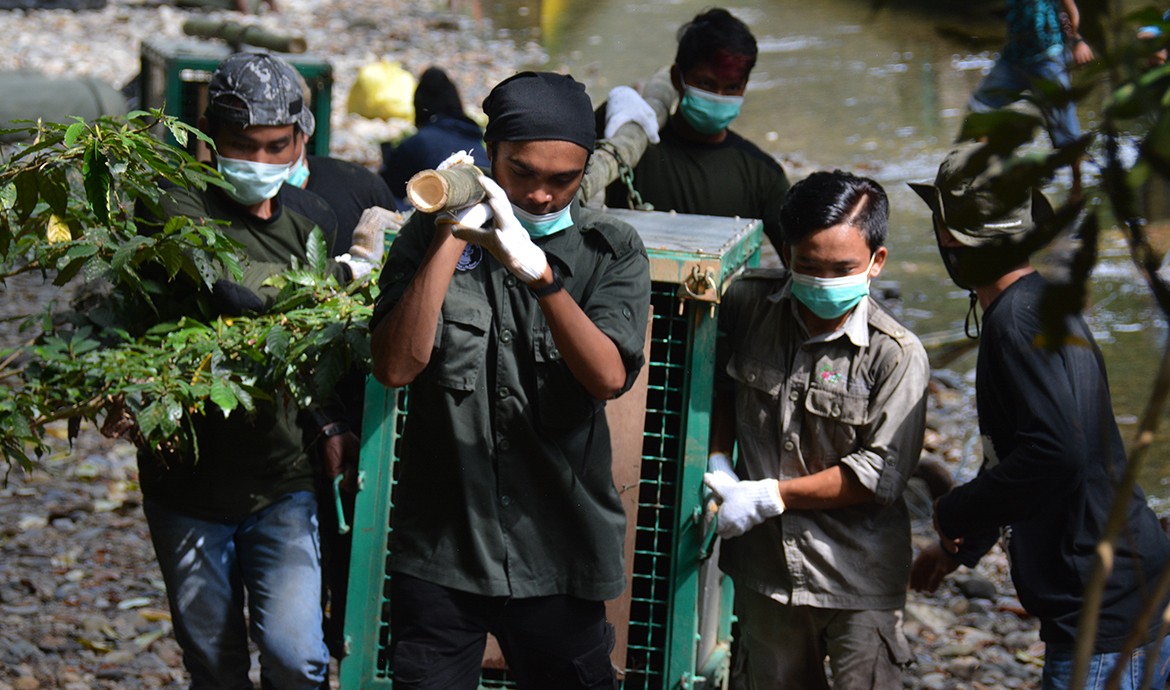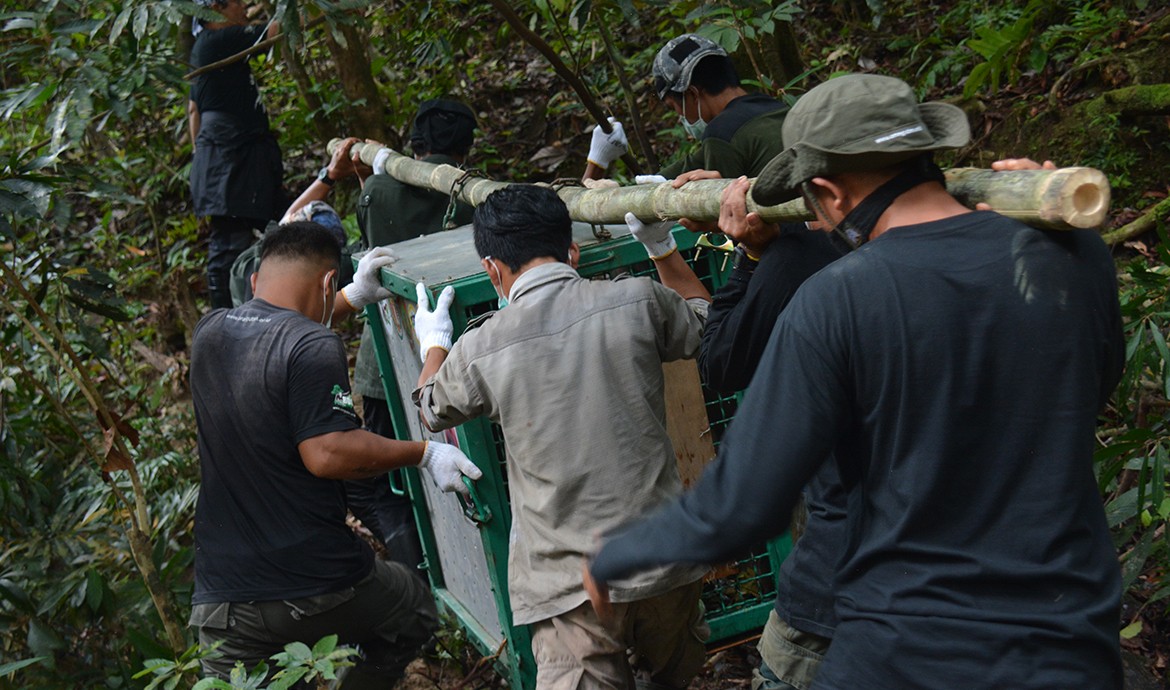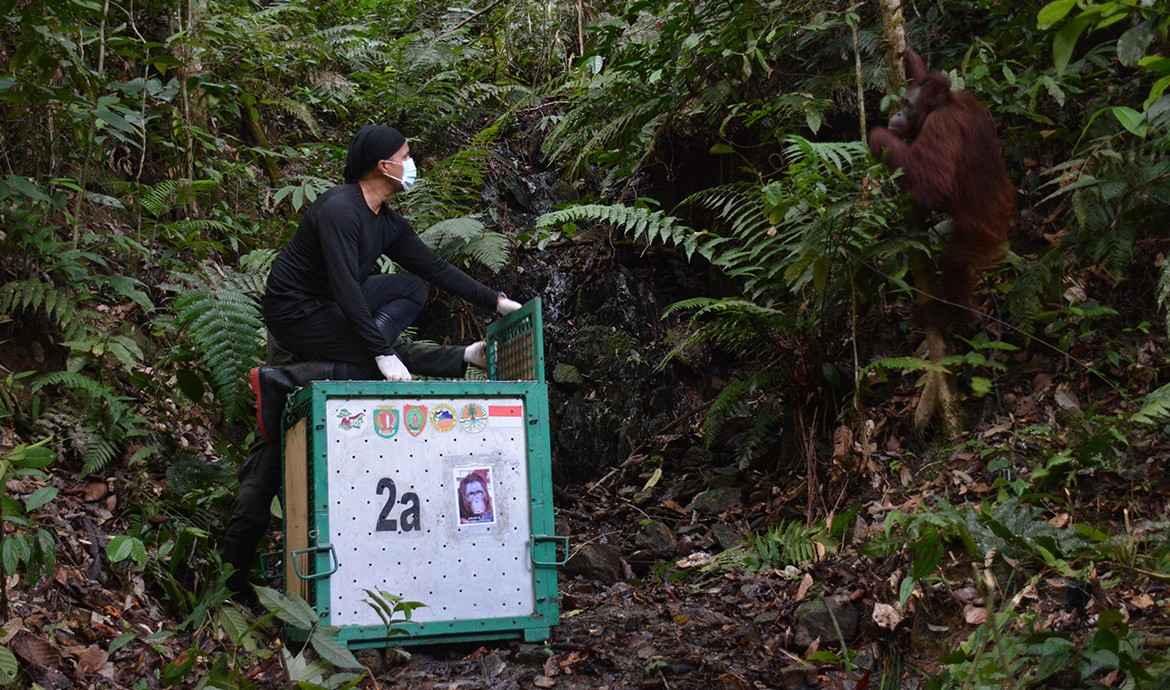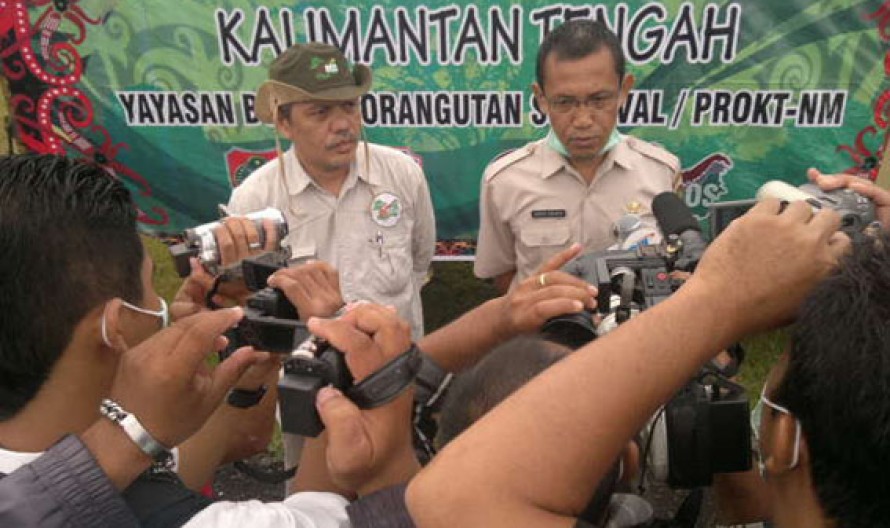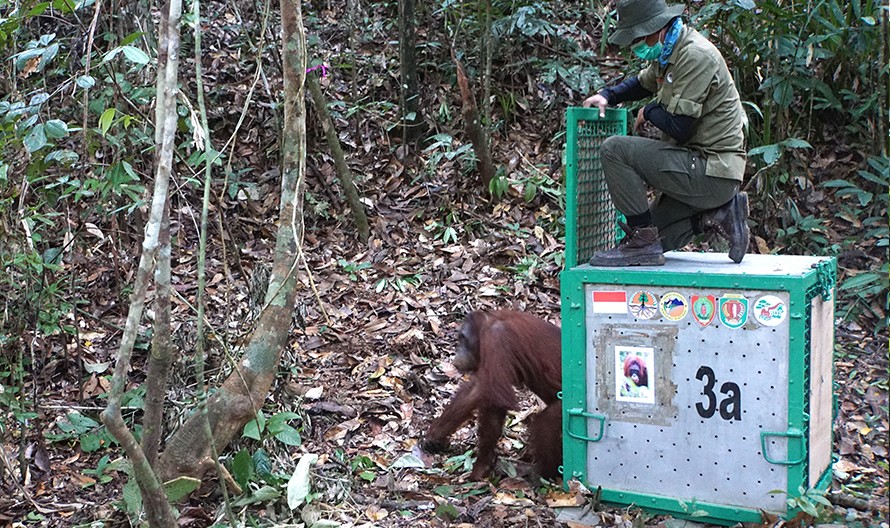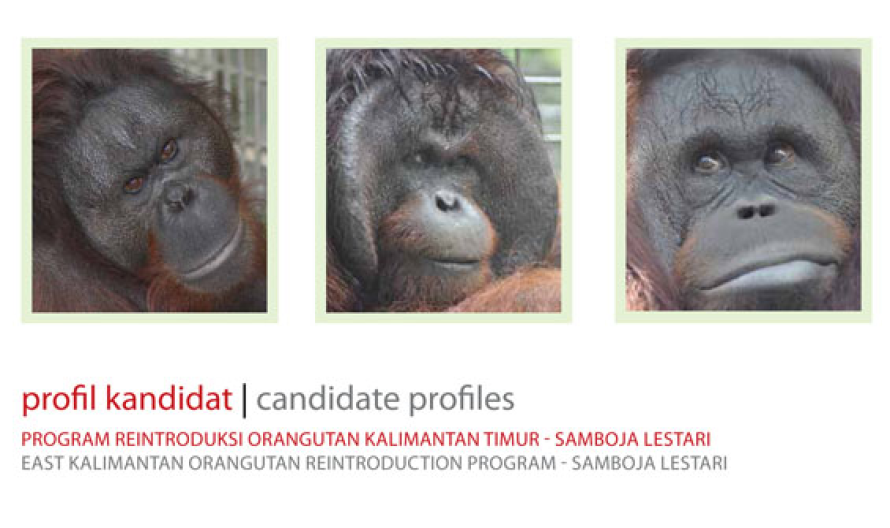The Bukit Baka Bukit Raya National Park (TNBBBR) will accommodate eleven more orangutans, including three who were repatriated from Thailand in 2008 and 2015, and two translocated wild orangutans. This final release of the year was made possible through collaboration between the Central Kalimantan Natural Resources Conservation Agency (BKSDA), the TNBBBR Authority, USAID LESTARI, and the Borneo Orangutan Survival (BOS) Foundation, and will increase the population of rehabilitated orangutans in the TNBBBR to 163.
Several more orangutans that have completed a long rehabilitation process are ready to be released into their natural habitat. One female adult named Suja, along with mother-daughter pair Warna and Malee – who were repatriated from Thailand by the Indonesian government in 2008 (Suja) and 2015 (Warna & Malee) - are ready to return to the wild. They will be accompanied by four other orangutans who have also completed the long rehabilitation process at the BOS Foundation’s Nyaru Menteng Orangutan Rehabilitation Centre and two dependent infants. Additionally, two wild adult orangutans will also be translocated to the forest. This release is the result of solid cooperation between the Central Kalimantan BKSDA, the TNBBBR Authority, USAID LESTARI, and the BOS Foundation. It will be the 19th orangutan release in TNBBBR, Katingan Regency, since the first release there in 2016, and will bring the rehabilitated orangutan population in the park to 163.
IR. ADIB GUNAWAN, Head of the Central Kalimantan Natural Resources Conservation Agency (BKSDA), said; «We are very happy to finally return some of the orangutan victims of illegal trafficking back to the forest. The fact that we are releasing three orangutans that were previously repatriated from Thailand shows that there is still hope for them to be returned to the wild - as long as certain requirements are met, such as being the appropriate age, having the ability to learn and develop natural life skills, and evidence of a successful rehabilitation process.
«This is proof of the effective cooperation between strongly committed stakeholders, like the BOS Foundation and USAID LESTARI, in trying to preserve orangutans, which are protected by law. The fact that we were able to repatriate orangutans who were previously smuggled out of the country proves that anybody can participate in protecting the environment by reporting any attempts of hunting, capturing, or killing animals that are protected by the law, such as orangutans. Let's protect and safeguard our forests and the biodiversity within.»
AGUNG NUGROHO, S.SI., M.A., Head of the Baka Bukit Raya National Park Authority (BTNBBBR), added; «It is our duty to ensure the safety of every rehabilitated orangutan released in the Bukit Baka Bukit Raya National Park. Here in this national park, orangutans can live freely and safely, and are protected. Moreover, the forest area in the park has enormous potential to support and sustain the orangutan population.»
«We have also begun to release orangutans in the Hiran watershed area. We are doing this to ensure the even and natural distribution of orangutans released in the forest, following a lengthy rehabilitation process in Nyaru Menteng. We hope that our efforts will encourage released orangutans to breed in the forest and increase the wild population. Thus far, we have recorded two natural births among our released females.»
«Together with other stakeholders, we are part of the final frontier in preserving the existence of the Bornean orangutan, which currently holds the status of 'Critically Endangered'. Here, they can live safely and begin to form a wild, independent, and sustainable population.»
ROSENDA CHANDRA KASIH, USAID LESTARI’s Central Kalimantan Landscape Coordinator commented; «USAID LESTARI remains fully committed to working with the Indonesian Government to preserve the sustainability and integrity of natural environments. The Bornean orangutan, which plays a vital role in maintaining the quality of forests and integrity of the ecosystem, despite being protected by law is still a 'Critically Endangered' species. The success of orangutans repatriated from other countries being eventually returned to the wild encourages us to further support rehabilitation and release activities aimed at conserving Bornean orangutans. We hope that the efforts undertaken by the Indonesian Government to protect and preserve Indonesia's forests and the biodiversity within them can be fully realized.»


